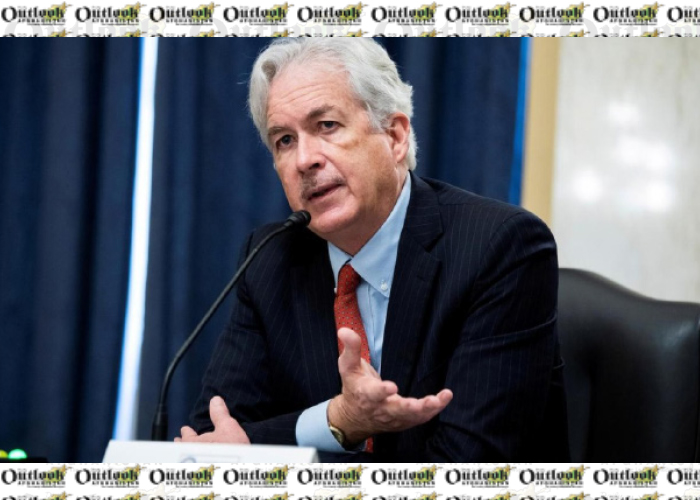KABUL - CIA Director William Burns reportedly made an unannounced visit to Kabul recently amid mounting concerns about Afghansitan’s capability to fight terrorism once the US and NATO forces withdraw.
The Associated Press reported Saturday that two credible sources had confirmed the visit. In Washington, the CIA declined to comment when asked by AP about the director’s schedule and the agency’s role in Afghanistan.
However, a senior former Afghan security official told AP that two of six units trained and run by the CIA to track militants have already been transferred to Afghan control.
Two Afghan officials told AP that Burns quietly visited Kabul last weekend. They would not say whom Burns met with, but said some of the discussions addressed Afghanistan’s preparedness after the U.S. pullout.
Burns also reportedly reassured Afghan officials that the U.S. would continue to be engaged in counterterrorism efforts.
AP reports that concerns are mounting that Afghanistan’s security forces won’t be able to halt a march by Taliban insurgents on government-held territory or battle terrorist groups without the help of U.S. and NATO soldiers.
The former security official told AP he believes terrorism-fighting capabilities will be significantly reduced once the roughly 2,500 to 3,500 U.S. troops and 7,000 allied NATO soldiers leave.
The official said the CIA had been training and running Afghan special forces known as Counter Terrorism Pursuit Teams, or CTPT.
According to AP, the teams are located in the provinces of Kunar, Paktia, Kandahar, Kabul, Khost and Nangarhar.
The official said the plan is to gradually hand them over to the National Directorate of Security (NDS). So far, the Kunar and Paktia units have been transferred to Afghan control, he said.
The CTPT teams are feared by many Afghans and have been implicated in extra-judicial killings of civilians. In 2019, the head of the Afghan intelligence service, Masoom Stanikzai, was forced to resign after one of these units was implicated in the summary execution of four brothers.
Earlier this year, in Afghanistan’s eastern Khost province, one of the teams was accused of gunning down civilians in a counterterrorism operation. The United Nations has also criticized the tactics of these units, previously blaming them for a rise in civilian casualties along with insurgent groups.
The former security official said that without the U.S. troops, Afghanistan’s technical intelligence gathering will suffer. Right now, some of the greatest successes in fighting terrorism and the narcotics trade have come from U.S. intelligence gathering, he said.
Meanwhile, a Western diplomat in Afghanistan said the unexpected U.S. announcement of an unconditional withdrawal left many security questions unanswered — such as what happens to NATO’s surveillance equipment and the giant blimp that hovers over the capital. The blimp provides real-time intelligence and 24-hour surveillance.
AP reported that David Barrett, a professor at Villanova University who specializes in the history of intelligence policy, said the troop pullout will reduce the amount of intelligence gathered by the military and ultimately provided to the CIA. But the U.S. can still monitor electronic communications and other signals with its advanced technology, and could intervene militarily if it assessed a threat to an American target, he said.
“We have amazing capabilities for knowing what’s happening on the ground,” he said. “If anyone, anywhere in Afghanistan decides they want to develop any ability to strike the U.S., they would be making a very big mistake.” (ATN)
Home » Afghanistan » CIA Chief Reportedly Made Unannounced Trip to Kabul
CIA Chief Reportedly Made Unannounced Trip to Kabul

